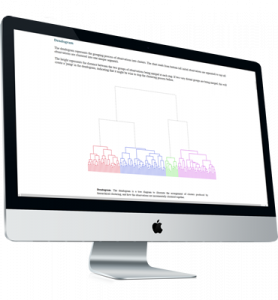Blue Apron Influencer Marketing (panel, network)
Try it!
Set in 2022, the Blue Apron case is structured to help students take a deep dive into the data about Instagram influencers and their posts. Students are asked to provide recommendations to improve the influencer marketing programs for the company, and to explore whether and how to use the contents and ideas contained in influencers’ posts to enhance the company’s cross-channel marketing efforts. The data can also help students identify the types of influencers the company should approach for establishing sponsorships and partnerships. Students will learn to apply the following analytic tools: Excel pivot tables, regression, panel data regression, and network analysis. Optionally, the data can also be used for exploring text analysis.
In this video, Professor Arvind Rangaswamy gives an introduction to the Blue Apron case.
Additional videos on the Blue Apron case and the Network model can be found in our Instructor Video Library.
A case study is deemed managerially complex when its solution is ambiguous, unclear, or requires extensive judgment calls; it is best suited for advanced students or executive education settings.
A case study is deemed technically complex when its solution requires extensive data manipulation, or when it requires to juggle with more than one marketing model.
Some case studies depict historical problems taking place decades ago. While graduate students and executive education participants have no problem with these cases, undergraduate students might find them dated.

- Registered instructors can freely evaluate all Enginius case studies. Register here.
- You can purchase each case study individually, or as part of a package.
- Each case study contains a data set, a case problem (pdf), and a case solution (pdf). The pdf files available on the main case study page linked above. Lookout for these links:




